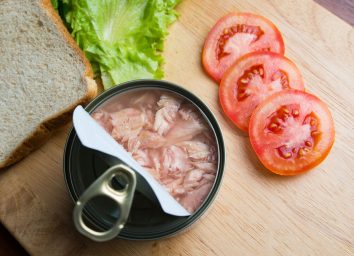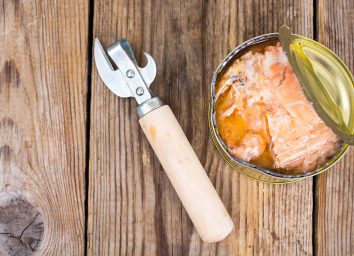Secret Side Effects of Eating Canned Salmon, Say Experts
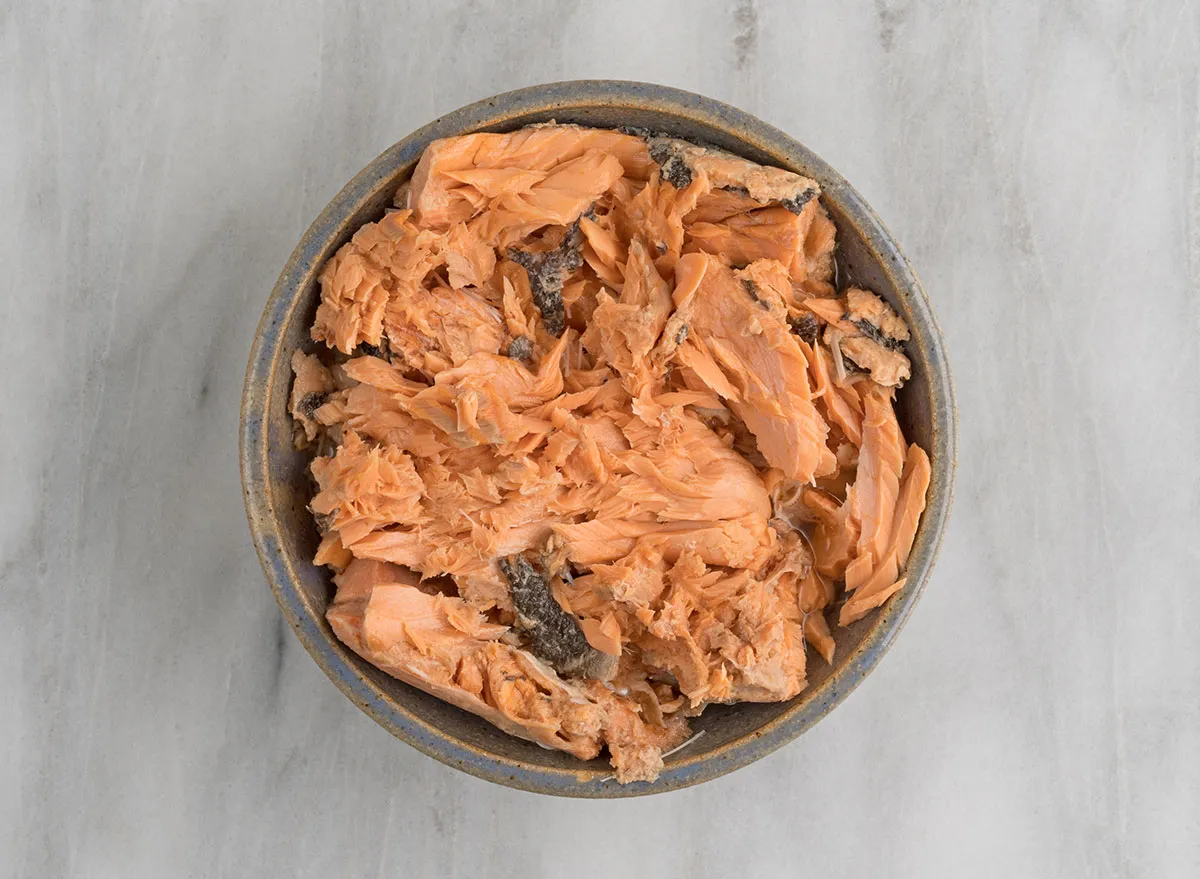
When you need a quick lunch or dinner, grabbing canned foods is an easy, fast solution. Rather than baking or grilling your fish of choice, you may consider buying canned salmon as an alternative. But is it healthy? Does eating canned salmon offer the same benefits as the traditional method?
Here, we spoke to experts about the secret side effects of eating canned salmon, including the good news—and the not-so-great drawbacks to consider. Consider this your 101 guide to this canned good, and for even more healthy tips, be sure to check out our list of The 7 Healthiest Foods to Eat Right Now.
You will boost your omega-3 intake.
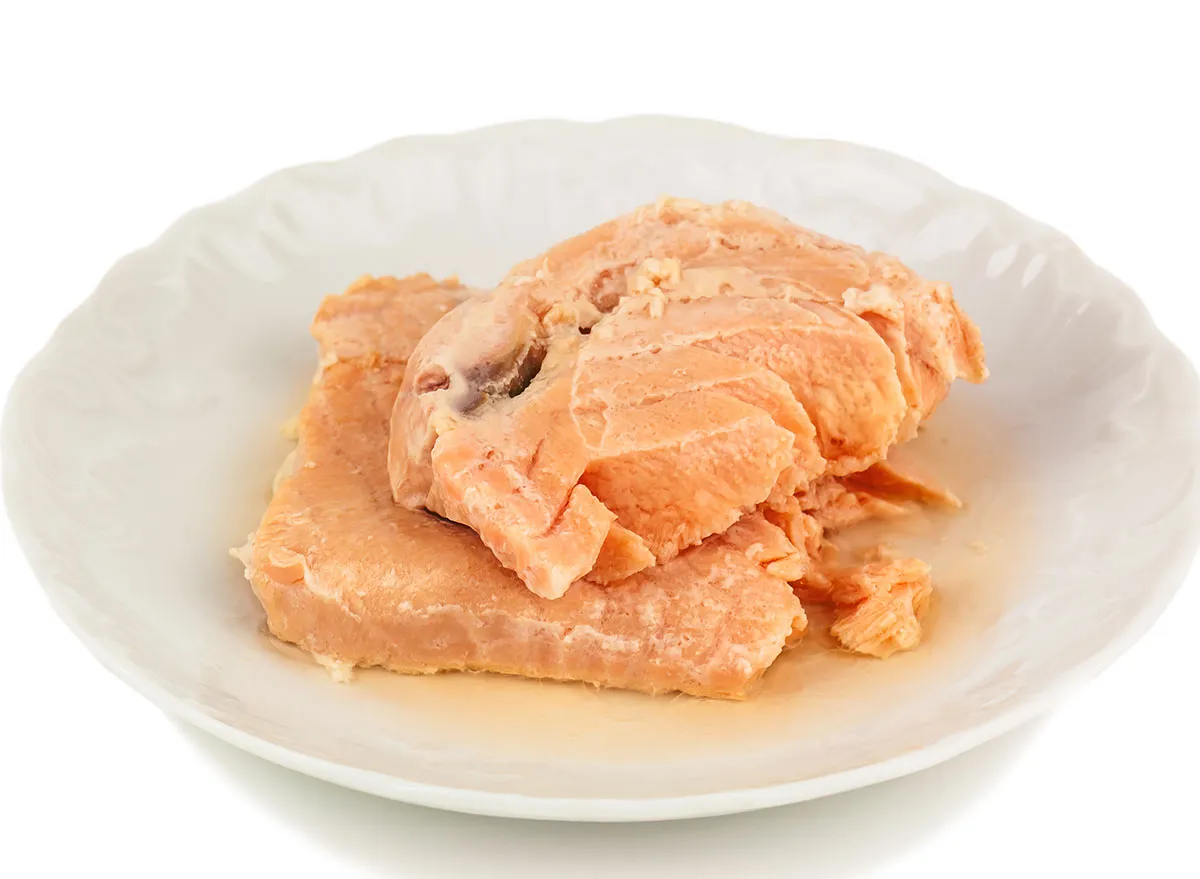
Omega-3 fatty acids are considered heart-healthy fats and are known for their anti-inflammatory properties. When we consume them regularly, they contribute to normal cholesterol levels, and they can lower your risk of cardiovascular disease, according to Dr. Josh Axe, DNM., CNS, DC, the founder of Ancient Nutrition. This makes them essential in any balanced diet, and luckily, salmon is an excellent source.
"Oily fish like wild-caught salmon is one of the best sources of omega-3s, which can sometimes be hard to get enough of from your overall diet," he says.
Along with eating canned salmon, here are 26 Best Omega-3 Foods to Fight Inflammation and Support Heart Health.
You'll be getting tons of protein.
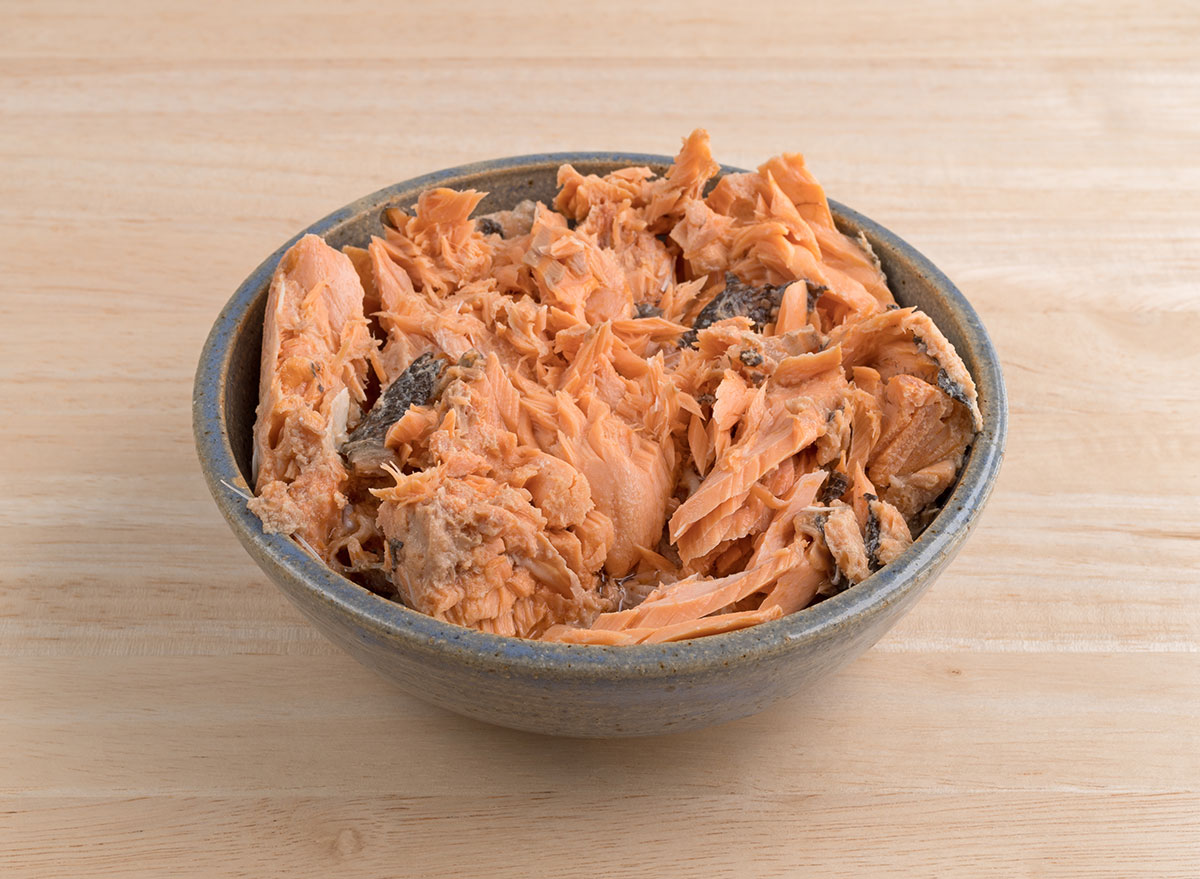
If you struggle to get enough protein in your diet, canned salmon may be an excellent solution. In fact, one 6 ounce can of canned salmon contains about 34 grams of protein, which is about 68% of the recommended daily value, according to celebrity chef and certified nutritionist Serena Poon.
"Protein is an important macronutrient that should make up about 10 to 35 percent of your overall diet," says Poon. "Plant-based protein and protein from fish and poultry are the best for your health and for the environment."
You'll be consuming a decent amount of sodium.
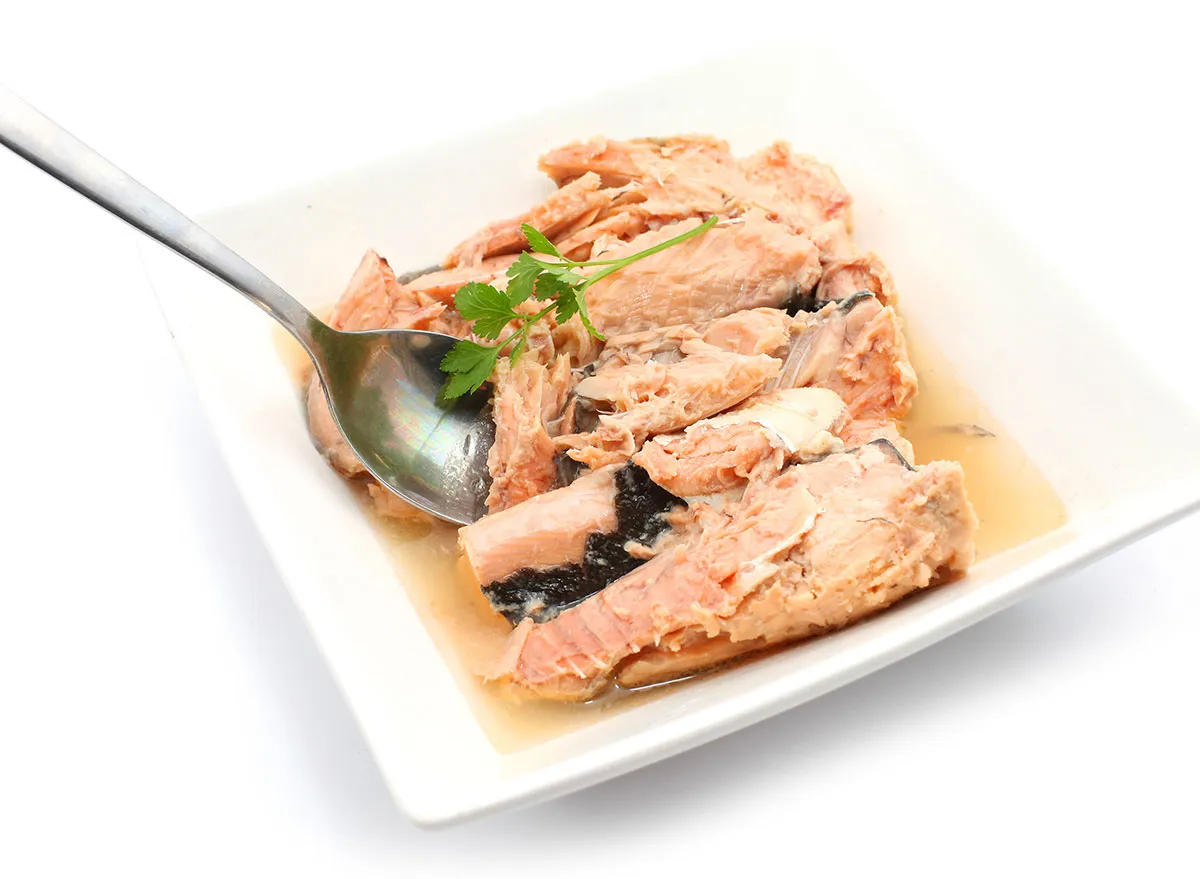
One drawback to eating canned foods is that they're salty, which helps to preserve them since they're already cooked, warns Dr. Axe. To put it in digestible numbers, a single can of salmon might contain about 30% of your daily sodium requirement—more than 650 milligrams.
"This may not be a big deal if you're otherwise healthy and you consume mostly unprocessed, fresh foods—however, if you have high blood pressure or kidney issues, then eating canned fish often might not be a good idea," he says.
You could get lots of calcium.
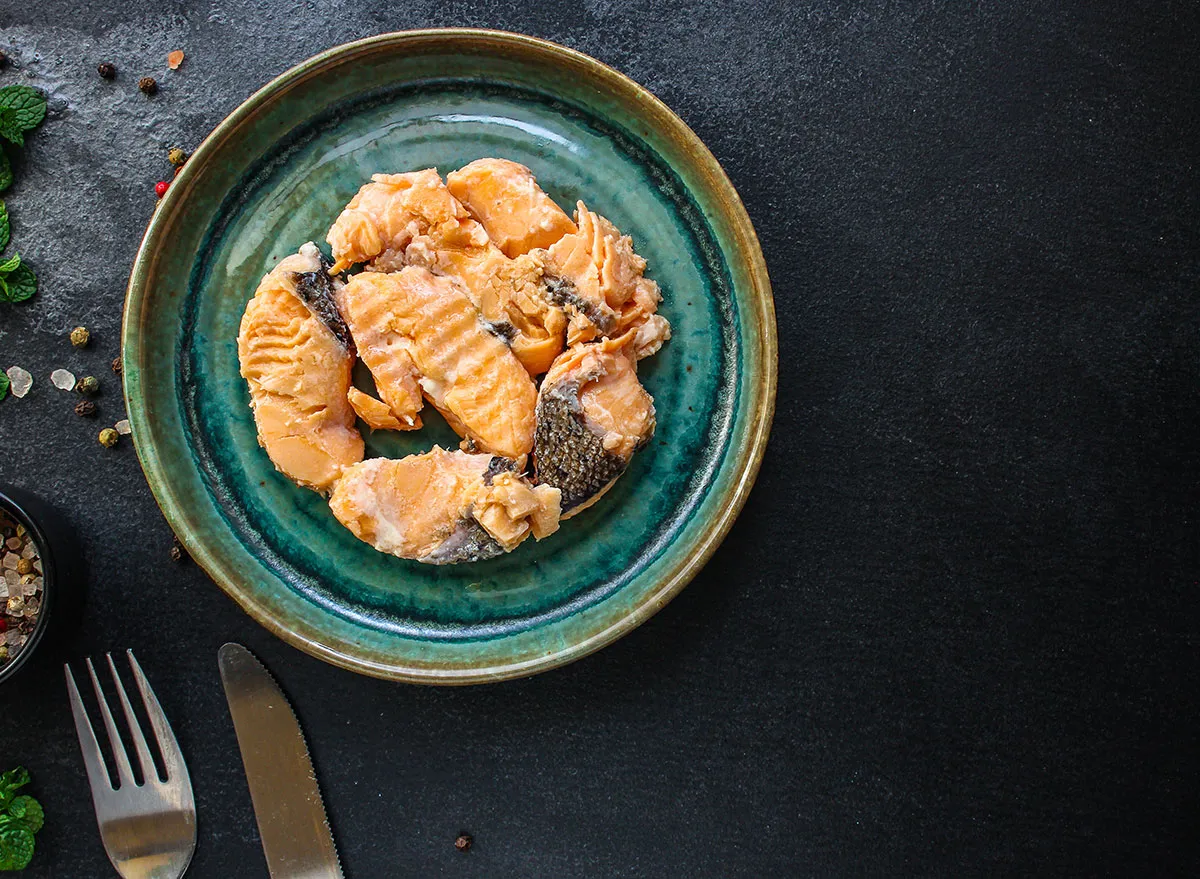
Though you should definitely watch out for your sodium intake, there is a benefit of eating canned salmon: it's full of the mineral and electrolyte, calcium. Dr. Axe says a 3.5 ounce serving of canned salmon provides almost as much calcium as a glass of skim milk. The reason? Believe it or not, there are tiny pieces of bones in your canned salmon, which contribute to the calcium!
Along with eating canned salmon, here are more Popular Foods With More Calcium Than a Glass of Milk!
If you're not careful, it could contain leached chemicals.
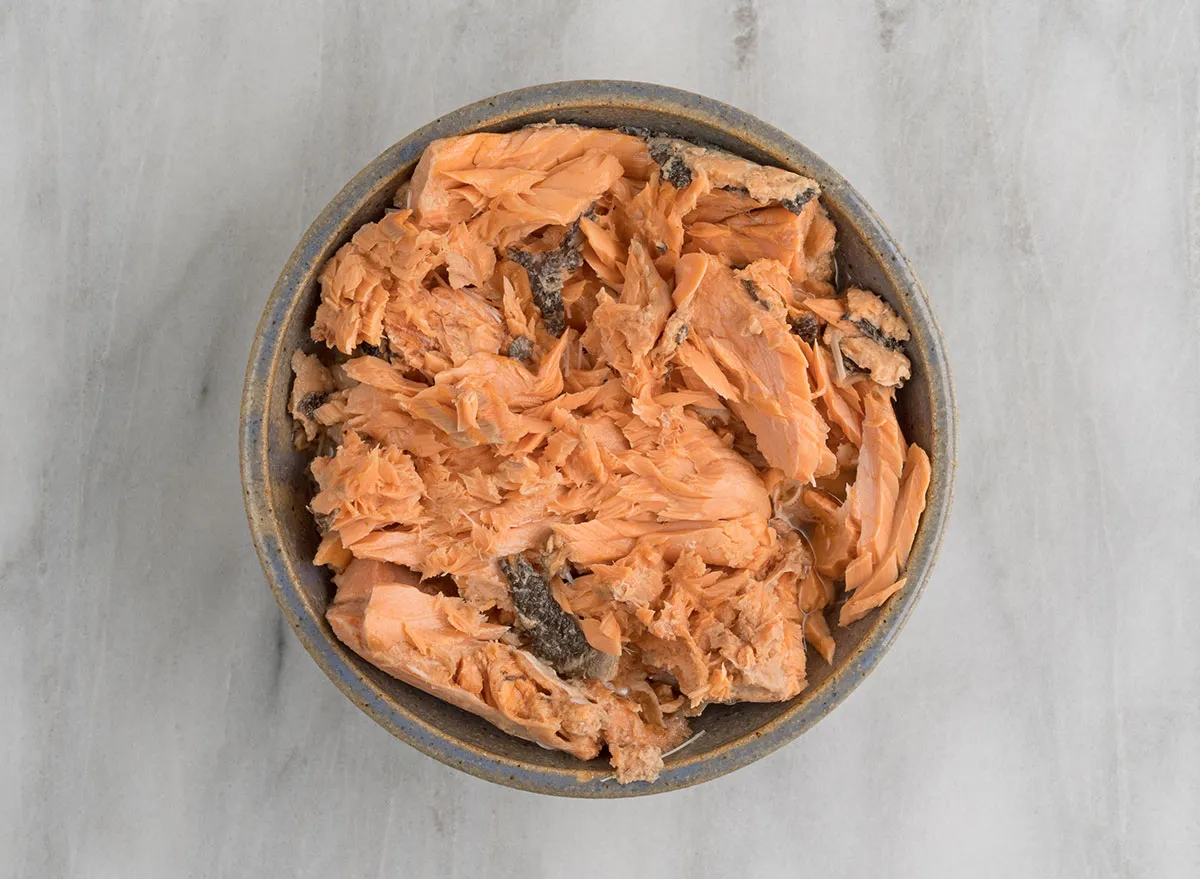
Unfortunately, Poon says canned food can run the risk of containing bisphenol A, a known endocrine disruptor that has been linked to cancer. Before we knew of these dangers, many canned food companies used BPA to seal their goods, but most have switched to a different alternative. Even so, Poon says it is still possible to purchase salmon in a can that contains BPA.
"When purchasing canned food, including canned salmon, it is important to look for BPA-free packaging," she recommends.
Depending on the origin, canned salmon could contain toxic chemicals.
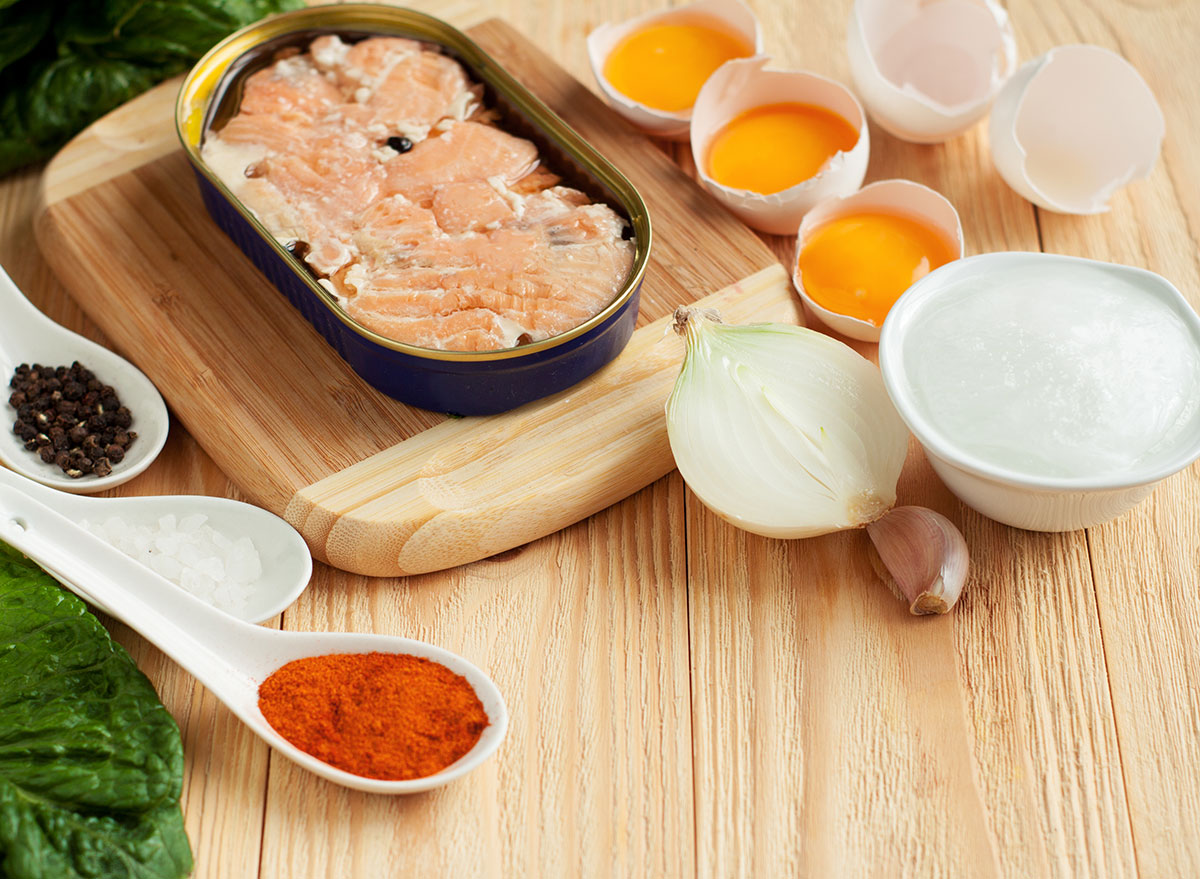
As with anything you consume, it's vital to do your research and check your sources. Poon says if you're going to go the canned route, make sure the salmon is wild-caught and produced from a reputable brand.
"Many canned salmon brands contain farmed salmon, which can be problematic," she says. "Farmed salmon also runs a higher risk of containing polychlorinated biphenyls (PCBs), which are industrial toxins that can have negative health effects on your immune, nervous and endocrine systems and could be linked to cancer."
However, in order for these toxins to make a significant difference in your health, you would have to consume a large amount of them at once. PCBs are also prevalent in foods such as dairy products and even vegetables. For more information on the benefits and risks, here are the Secret Effects of Eating Farmed Salmon.
